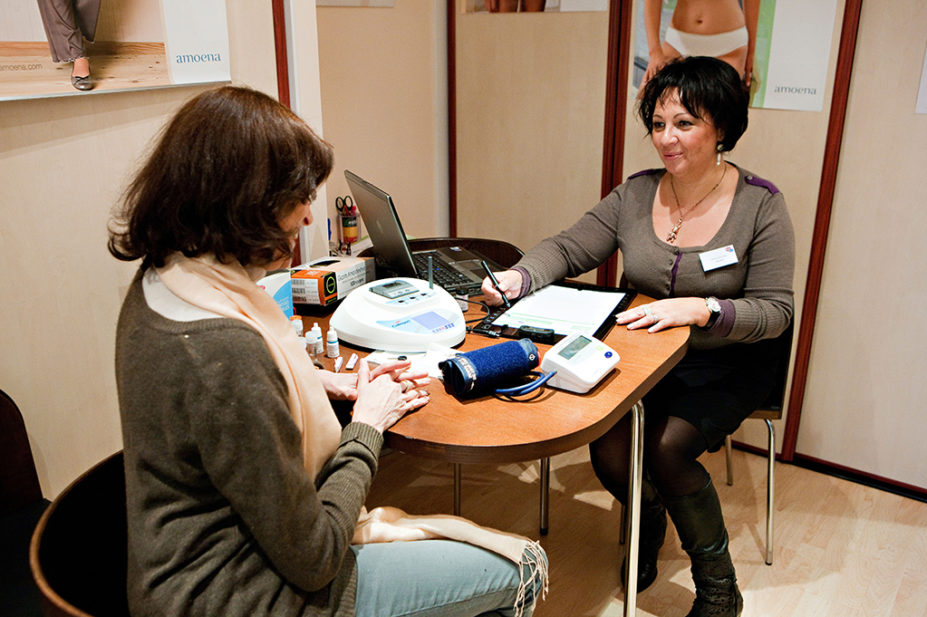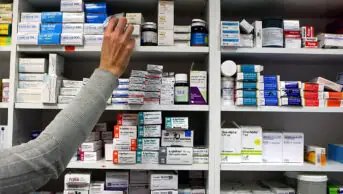
BSIP SA / Alamy Stock Photo
Structured medication reviews (SMRs) should last at least 30 minutes to maximise the scope for shared decision making, the national clinical director for prescribing in England has said.
According to a slide presented by Tony Avery at the Primary Care Pharmacy Association (PCPA) 2022 conference on 8 June 2022, expanding the number of clinical pharmacists in primary care networks (PCNs) and widening the use of SMRs were “key approaches” to address overprescribing.
“For example, there is currently no fixed length for a SMR, though they are expected to last at least 30 minutes,” the slide said.
“It is important that SMRs are maintained in terms of their quality, including the time allocated for each one and the experiences of patients taking part.”
At the Clinical Pharmacy Congress in May 2022, pharmacists complained they were “struggling to convince” GPs to give them long enough appointments with patients to carry out the SMR and that the introduction of financial incentives in April 2022 was making the situation worse.
At the time, Avery said he would “have a look at” the issues raised.
Commenting on the PCPA presentation, Alisdair Jones, lead PCN pharmacist at Total Health Excellence PCN, said it was “great” to hear support and enthusiasm for the role pharmacists play in SMRs.
“They provide an excellent opportunity to review the need for every medicine, but this cannot be done in five to ten minutes,” he said.
“Thirty-minute appointments should be considered the minimum for most of our target groups, and indeed some patients may need more than one appointment. I am pleased that [Avery] agreed with this and hopefully this message will cascade down to PCN-level leaders.”
Rosalyne Payne, lead clinical pharmacist for Coventry and Rugby GP Alliance, also welcomed Avery’s comments about SMRs and the recognition that, in some patients, an SMR could be significantly longer if they are on a complex regimen or have a lot to discuss.
“We also need to be aware that SMRs aren’t standalone, they’re part of a series of consultations — it isn’t just a 30-minute consultation, tick, that’s you done until next year, it’s the recognition that this is the beginning of a relationship as we coach someone through optimising their medicines; it might be a fortnightly follow-on call for a period of weeks or months.
“The SMR is a start, not a complete thing.”
Payne added that the length of SMRs currently was “mixed” across the 50+ GP practices she works with, ranging from 15 minutes to no time limit and “everything in between”.
However, she pointed out that for the number of points awarded via the NHS England Investment and Impact Fund and the amount of work required, there was a risk that SMRs would not be the priority.
“That’s where I really welcome Tony Avery’s comments and hopefully he has the influence to really lead on this and influence his GP colleagues.”
Graham Stretch, president of the PCPA, said it was clear that Avery understood the need for pharmacy to support his overprescribing agenda.
“He appears committed to getting the message out around longer SMR appointments; he said this unequivocally and mentioned it more than once [during the session],” he said.
“[Avery] was clear that he would be supporting the concept that pharmacists would need a 30-minute appointment to carry out SMRs and would help to address any misunderstanding [around this] from GP colleagues.”
Study results published in May 2022 showed that SMRs conducted by pharmacists working in general practice were being undermined by a lack of skills and support and were not putting patient outcomes first.


